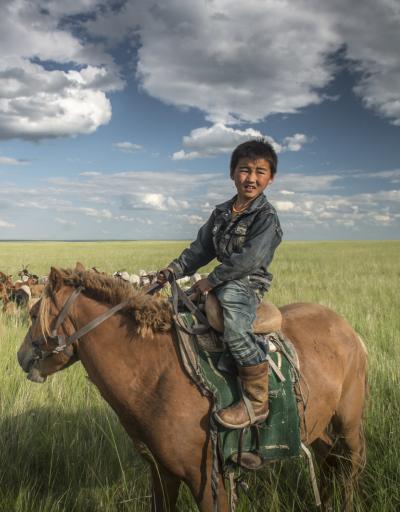
MAB Young Scientists Award
The MAB Young Scientists Awards targets young researchers carrying out interdisciplinary research in line with UNESCO's Man and the Biosphere (MAB) Programme. Priority is given to projects carried out in biosphere reserves. Until 2025, implementation of the UNESCO MAB Programme is guided by the MAB Strategy and Lima Action Plan (LAP) for UNESCO’s MAB Programme and its World Network of Biosphere Reserves (WNBR), which contributes to the achievement of the 2030 Agenda and its Sustainable Development Goals (SDGs). MAB Young Scientists Award applicants are strongly encouraged to take into account the priorities of the LAP, and to identify in their applications how their research contributes to the research-related actions of the LAP and to the SDGs.
Since 2022, the MAB YSA Scheme has received support from the Principality of Monaco enabling five additional annual fellowships specifically benefitting studies on marine, island and coastal issues in biosphere reserves.
This generous support reinforces the contribution of the MAB Programme towards the UN Decade of Ocean Science for Sustainable Development. Around the world, more than 200 coastal, island and marine biosphere reserves make a crucial contribution to the Decade by promoting the integrated conservation of marine and coastal ecosystems with sustainable human development supported by research and knowledge exchange. The MAB Programme’s World Network of Islands and Coastal Biosphere Reserves plays a particular global coordinating role in this regard, mobilizing island and coastal biosphere reserves in support of the UN Decade.
Objectives
The MAB Young Scientists Award Scheme aims to:
- encourage young scientists, in particular those from developing countries, to use MAB research, project sites and biosphere reserves in their research;
- encourage young scientists who already use such sites to undertake comparative studies in other sites in or outside their own country;
- promote and encourage the exchange of information and experience among a new generation of scientists;
- strengthen communication of the LAP within the young scientists and strengthen its visibility;
- involve young scientists in the implementation of the LAP;
- enhance awareness among young scientists of the role of research in the implementation of the SDGs – in particular when conducted in biosphere reserves;
- through the granting of dedicated fellowships for studies on marine, island and coastal issues in biosphere reserves, encourage young scientists to apply for MAB YSA within this thematic area and thereby mobilizing young scientists to engage actively in the UN Decade of Ocean Science for Sustainable Development.
Criteria
The following criteria are used in the selection of MAB Young Scientists Awards:
- To be eligible, award applications must be made on the MAB Young Scientists Award application form (in English or French) and follow-up technical requirements stated there. The application must be endorsed by the applicant's MAB National Committee*, which may endorse only two applications per year from applicants who are not older than 35 years of age (at the closing date of the application).
- Applications must contain concise information on past and existing research in areas concerned in order to present linkages and avoid duplications and financing of projects already carried-out.
- Priority is given to interdisciplinary projects carried out in biosphere reserves designated under the Man and the Biosphere Programme or potential biosphere reserves and which contribute to the implementation of the LAP and the SDGs. In this regard, applicants shall identify in their applications if and how their research contributes to the research-related actions of the LAP and to the SDGs.
- Applicants from developed countries are eligible for Awards only in exceptional cases or if working in joint partnership with developing countries.
- Awards are set at a maximum of US$5,000 each.
- Research supported by an Award should be completed within two years.
- Candidates must accept to submit reports of Award-funded research to the MAB Secretariat in Paris and to their MAB National Committees*, and agree to the possibility of UNESCO publishing the results of their research.
- International travel expenses are usually not covered under these Awards.
In 2022, UNESCO and the Principality of Monaco reached an agreement to award five (5) additional prizes per annum to studies focusing on marine, island and coastal issues in biosphere reserves. As a result hereof, a total of eleven (11) awards will be granted in 2024, six (6) under the general criteria and conditions and an additional five (5) studies focusing on marine, island and coastal issues.
* For the countries in which a MAB National Committee does not exist or is not fully operational, the National Commission for UNESCO will ensure the selection of candidates according to the above criteria.
News
Contact
MAB Secretariat
Division of Ecological and Earth Sciences
UNESCO
7, Place de Fontenoy
75352 Paris SP 07, France
E-mail: mab.awards@unesco.org

